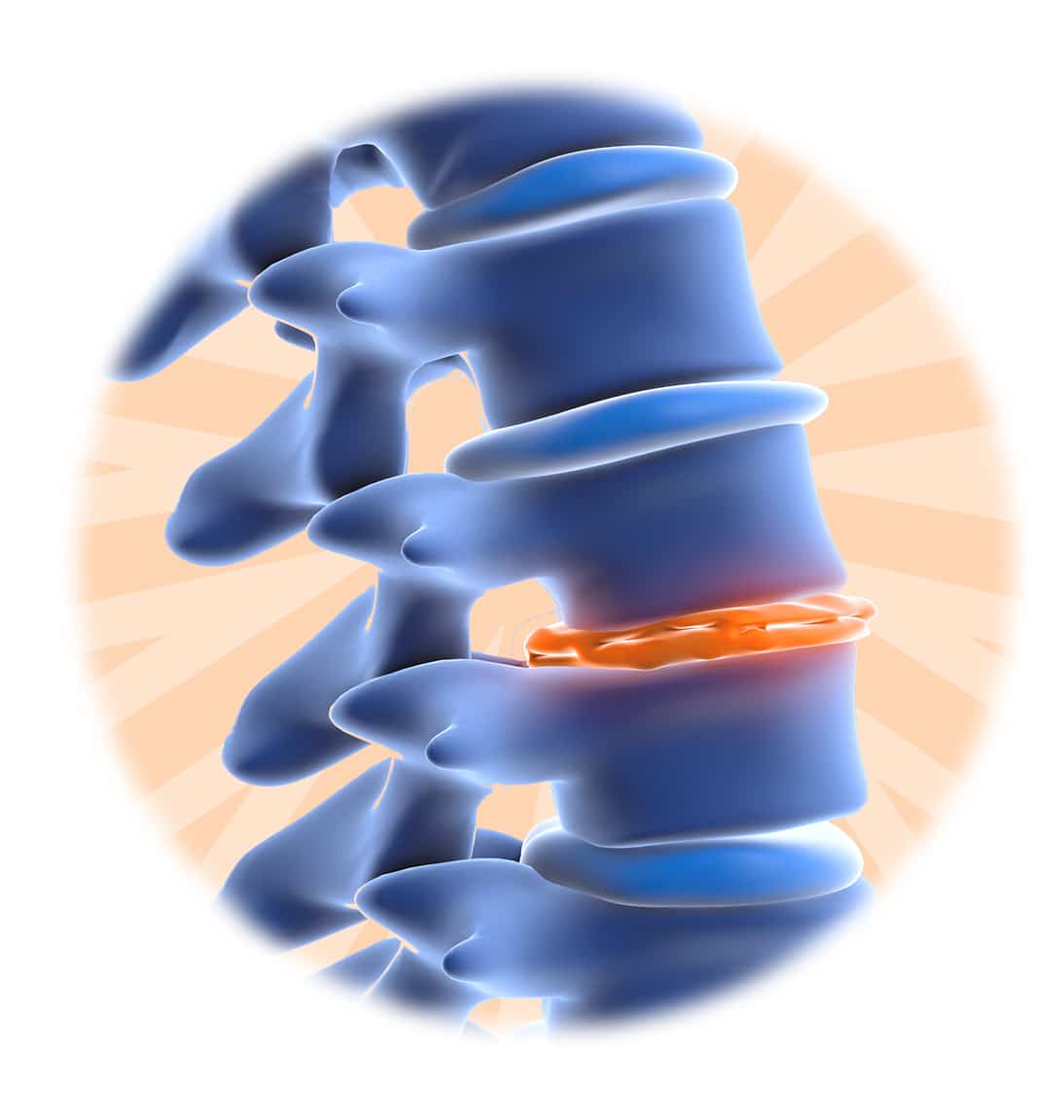Disc Degeneration Disease Pain Management Specialists
Degenerative Disc Disease
Condition Overview
Your spine consists of vertebrae and discs. Vertebrae are bony building blocks that provide support and protection to the spinal cord. Discs act as soft cushions between the vertebrae that work to keep you comfortable when moving. Disc degeneration happens when discs lose hydration and flexibility over time, leading to various symptoms and potential problems.
Factors like aging, genetics, spinal injuries, repetitive stress, poor posture, sedentary lifestyle and other health conditions can all play a role in this deterioration.
Don’t let pain hold you back. If you’re seeking treatment for disc degeneration in your back and spine, contact a Nura pain specialist who can provide the tailored pain relief you need.
Videos
Learn more about disc degeneration
Symptoms of Degenerative Disc Disease
The most common symptom of disc degeneration disease is chronic back pain. This pain will be localized to the areas of your spine that are most affected. Other symptoms include:
- Stiffness. Reduced flexibility and mobility in the affected area.
- Pain radiating to other areas. Discomfort may extend to the buttocks, thighs or arms.
- Numbness and tingling. Sensations of numbness or tingling, often felt in the arms or legs.
- Weakness. Loss of strength or muscle weakness, particularly in the arms or legs.
- Changes in posture or gait. Altered posture or walking pattern due to pain or stiffness.
- Reduced range of motion. Difficulty bending, twisting or performing everyday activities.

Diagnosis of Degenerative Disc Disease
Disc degeneration is typically diagnosed through a physical exam from a specialist and a review of your medical history. Things like spinal alignment and muscle strength can also be looked at during this exam. Imaging studies like X-rays, MRIs or CT scans are sometimes recommended to help visualize the exact condition of the discs.
Accurate diagnostics help your doctor better pinpoint the extent of disc degeneration in your back and formulate a treatment plan that meets your unique needs.
Treatment Options for Degenerative Disc Disease
Treating disc degeneration usually involves a mix of interventional and surgical methods. Treatment aims to manage symptoms and improve mobility and might involve physical therapy, changes to daily habits or medication. If initial conservative measures don’t work, surgery becomes an option for reducing pain and improving spinal stability.
The most common treatment options available at Nura include:

Real people, real stories
They listen. The address every concern.
When Bob had spinal fusion surgery in 1996 after a back injury, his doctor warned of potential issues 20 to 25 years later. Unfortunately, just a few years after surgery, Bob’s situation worsened when he slipped at work, cracking ribs and causing further back problems. Another surgery for spinal compression was needed, but the pain continued to grow over time.
Read More
Find Pain Relief
Schedule an appointment with one of our pain specialists by filling out our appointment request form or giving us a call at 763-537-6000.
